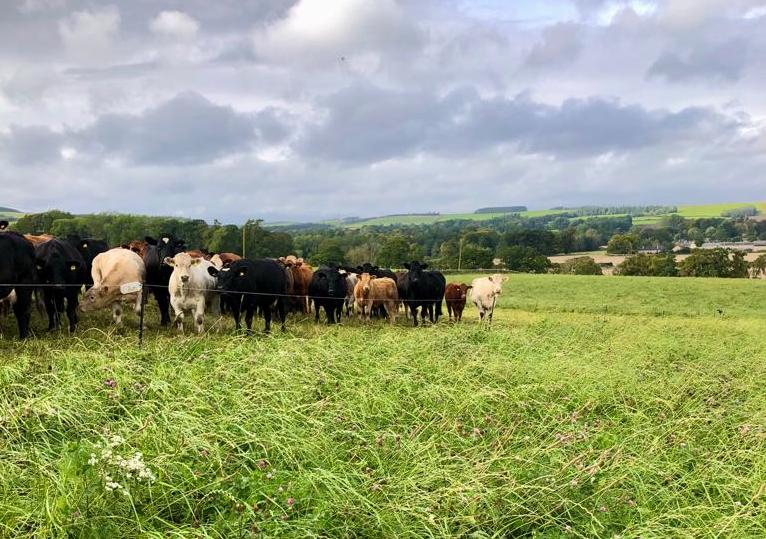
The Soil Farmer of the Year 2024 competition is now open for farmers to apply.
The competition, run by Farm Carbon Toolkit and Innovation for Agriculture, finds and champions farmers and growers who lead the way in improving soil health and increasing the resilience of their farm business. The competition, which has been running since 2015, now supports a network of farmers and growers across the UK who are passionate about their soil and the innovations that safeguarding it can bring to their business.
Emma Adams, Senior Farm Carbon and Soils Advisor at the Farm Carbon Toolkit, encourages any farmer or grower who is prioritising the management of soil to apply:
The competition is open to all farmers and growers in the UK, regardless of system, enterprise or business size. If the impact on soil is at the heart of your decision making, with implemented practices driving improving soil health as part of a fully functioning farm ecosystem, this is the competition for you.
Online application forms are available via the Farm Carbon Toolkit website. Applications will remain open until 5th March 2024.
The winners will be announced at Groundswell 2024: The Regenerative Agriculture Festival on 26th-27th June 2024, with the top three farms hosting farm walks later in the year to share ideas alongside demonstrating their practices and approaches.
Deborah Crossan, Head of Soils and Natural Resources at Innovation for Agriculture, explains that the farm walks are a key part of the competition, as it gives others the opportunity to see how each winner has approached soil management:
Nothing beats digging a hole and looking at the soil in the field while hearing directly from the farmer how that field has been managed and seeing the impact it’s had on the soil structure over time.
This competition champions farmers who understand the importance of soil and are using management practices to protect and improve it. Crucially, it also enables others to learn from what they’re doing via the farm walks.
This year’s competition is once more kindly sponsored by Cotswold Seeds and Hutchinsons, with the top three farmers receiving a voucher for seeds provided by Cotswold Seeds.
For more information about the Soil Farmer of the Year Competition – and entry details – visit: Soil Farmer of the Year – Farm Carbon Toolkit
ENDS
Issued by: Emma Adams, [email protected]
NOTES TO EDITORS
- Innovation for Agriculture (IfA) is an independent, charitable organisation working to make UK agriculture more sustainable, profitable and resilient. Through interactive workshops, on-farm demonstrations and practical events, IfA aims to provide UK farmers with solutions of real commercial value. Visit: www.i4agri.org
- Farm Carbon Toolkit is an independent, farmer-led Community Interest Company, supporting farmers to measure, understand and act on their greenhouse gas emissions, while improving their business resilience for the future.
- For over a decade, Farm Carbon Toolkit has delivered a range of practical projects, tools and services that have inspired real action on the ground. Organisations they work with include farmer groups, Duchy of Cornwall, First Milk, Tesco, Yeo Valley and WWF. The Farm Carbon Calculator is a leading on-farm carbon audit tool, used by over 7,000 farmers in the UK and beyond. To find out more visit www.farmcarbontoolkit.org.uk
- For over a decade, Farm Carbon Toolkit has delivered a range of practical projects, tools and services that have inspired real action on the ground. Organisations they work with include farmer groups, Duchy of Cornwall, First Milk, Tesco, Yeo Valley and WWF. The Farm Carbon Calculator is a leading on-farm carbon audit tool, used by over 7,000 farmers in the UK and beyond. To find out more visit www.farmcarbontoolkit.org.uk
- The competition is being judged by a panel including representatives from IfA and Farm Carbon Toolkit, Cotswold Seeds, Hutchinsons and previous Soil Farmer of the Year winners.



Recent Comments